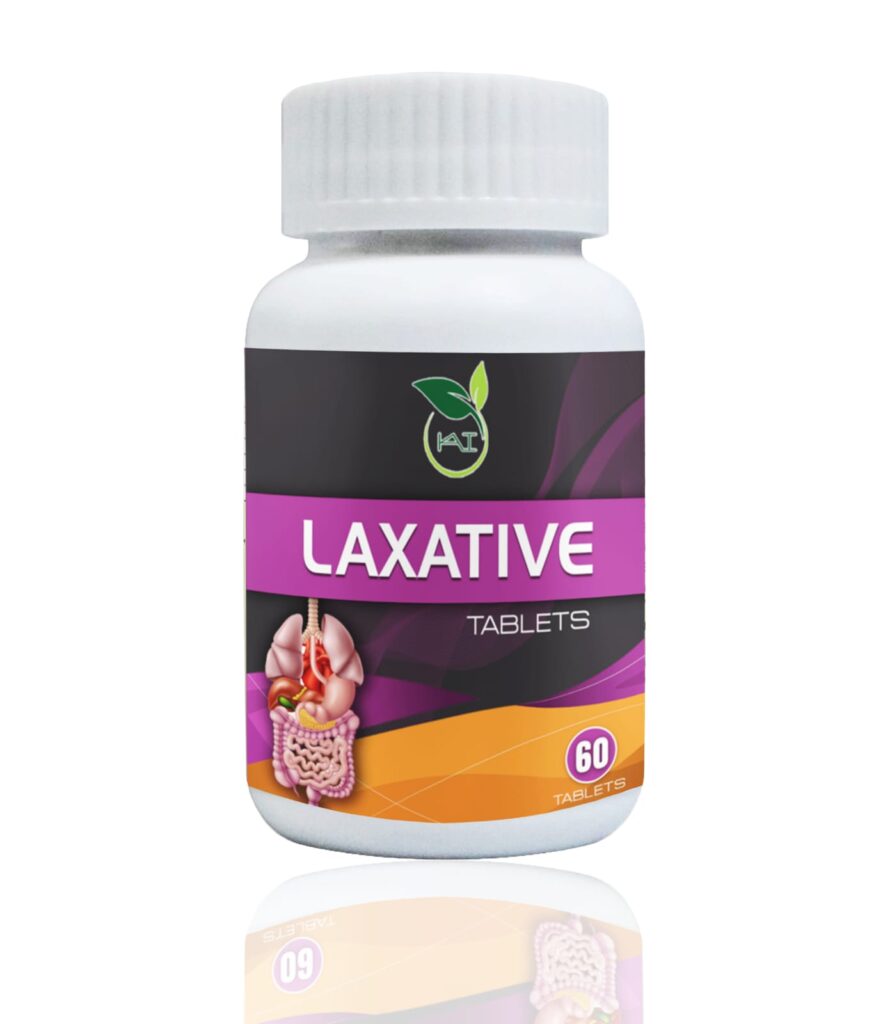LAXATIVE TABLETS
PROPERTIES OF LAXATIVE TABLETS:
- It helps in digestion and increases the quantity of stool.
- It makes faecal matter softer and easy to pass.
INGREDIENTS:
Active Ingredients: Each tablet contains: |
| ||
Sr. No. | Name o Ingredients | Latin/English Name | Qty in mg |
1. | Senna | Cassia angustifolia | 150 |
2. | Nisoth | Operculina turpethum | 50 |
3. | Ajwain | Trahyspermum ammi | 50 |
4. | Amla | Phylanthus emblica | 75 |
5. | Harad | Termnalia chebula | 25 |
6. | Yastimadhu | Glycyrrhiza glabra | 50 |
7. | Saunf | Foeniculum vulgare | 25 |
8. | Baheda | Terminalia bellirica | 50 |
HOW TO USE:
- 1 tablet before going to bed or as directed by the healthcare professional.
- Swallow it with lukewarm water.
INGREDIENTS:
- SENNA (Cassia angustifolia): It’s a native plant of Yemen, Somalia, and Arabia and now it is cultivated in other parts of the world. Senna is mainly used for its cathartic properties and specifically cures habitual constipation.
- NSOTH (Operculina turpethum): This herb is also one of the well-known traditional herbs used in Ayurveda, to treat various diseases. Generally, it is used as expectorant, brain tonic and laxative. Some studies revealed that Operculina turpethum has anti-inflammatory, analgesic, antioxidant, anti-diabetic, anti-ulcer, anti-diarrhoeal, anti-cancer and many other properties.
- AJWAIN (Trahysperum ammi): Ajwain is available throughout India. Trahysperum ammi is used as a stimulant, for flatulence, atonic dyspepsia, diarrhoea, abdominal tumours, abdominal pains, piles and other problems.
- AMLA (Phylanthus emblica): Amla known as Amalaki in Ayurveda helps to prevent the accumulation of toxins in the body and fight against many diseases. It helps to cure jaundice, indigestion, piles, cough, diarrhoea, and dysentery.
- HARAD (Termnalia chebula): it’s a very important medicinal plant found throughout India. It can perform multiple pharmacological activities as it consists of various kinds of phytoconstituents such as gallic acid, methyl gallate, ethyl gallate, and many others.
- YASTIMADHU (Glycyrrhiza glabra): it is also known as Licorice, sweet wood, Mulhatti. Yastimadhu is widely used as a classical medicinal plant and can be found in many different traditional formulas. Modern studies revealed that it has numerous pharmacological effects such as healing, anti-ulcer, anti-inflammatory, anti-fungal, anti-bacterial, anti-haemorrhoidal, antioxidant and other properties.
- SAUNF (Foeniculum vulgare): It is a remedy that is used by every Indian for digestive complaints such as flatulence, constipation, colic, nausea, vomiting, anorexia (loss of appetite), dyspepsia (indigestion), and hiccups.
- BAHEDA (Terminalia bellirica): This plant has various medicinal properties and is found widely throughout the Indian subcontinents and other parts of the world. Traditionally it is used as a laxative, astringent, anthelmintic and antipyretic which are useful in hepatitis, bronchitis, asthma, dyspepsia, piles, diarrhoea, and coughs.
NOTE:
- This product is not intended to treat, cure or prevent any disease.
- Please consult your healthcare professional.
CAUTION:
Keep away from children’s reach.
CONTRA INDICATION: Nil in Therapeutic use.
